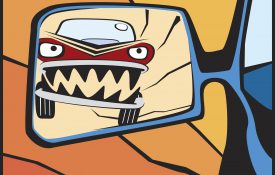-
The Replication Game: How Well Do Psychology Studies Hold Up?
NPR's Science Friday: Replication is a cornerstone of scientific research, a way of checking to make sure a particular effect or result is real and not a statistical anomaly. But a lot of research can’t be replicated—a fact that recently hit home in the field of psychological science. Last year, for instance, researchers at the Center for Open Science found that they were unable to replicate findings in 61 out of 100 psychology papers selected, the most of any field they tested. But there’s another problem: Many journals shy away from accepting studies that revisit earlier, high-profile research that turns out to be irreproducible. Read the whole story: NPR's Science Friday
-
Clinton is more optimistic than Trump. But optimism doesn’t predict winners anymore.
The Washington Post: Democrats finished their party convention in Philadelphia celebrating their monopoly on optimism. Under the headline “Hillary Clinton’s Democratic Party Reclaims Morning in America,” the Daily Beast’s Michael Tomasky wrote: “Donald Trump, and the millions who voted for him, turned the Republican Party into a party of rage about America. They spoke . . . about a country that has stage-four cancer.
-
No One Wins Gold for Practicing the Most
Scientific American: Is it safe to assume that a gold medalist at the Olympics practiced more than a silver medalist—and that a silver medalist practiced more than a bronze winner? Definitely not, according to a new analysis, which looked at nearly 3,000 athletes. The study found that although becoming world class takes an enormous amount of practice, the success of elite athletes cannot be predicted based on the number of hours they spend in careful training. ... But a new study published in Perspectives on Psychological Science shows—as others have—that deliberate practice is just one factor that makes world sports champions.
-
What Babies Know About Physics and Foreign Languages
The New York Times: Parents and policy makers have become obsessed with getting young children to learn more, faster. But the picture of early learning that drives them is exactly the opposite of the one that emerges from developmental science. In the last 30 years, the United States has completed its transformation to an information economy. Knowledge is as important in the 21st century as capital was in the 19th, or land in the 18th. In the same 30 years, scientists have discovered that even very young children learn more than we once thought possible. Put those together and our preoccupation with making children learn is no surprise. ...
-
New Research From Psychological Science
Read about the latest research published in Psychological Science: The Effect of Relative Encoding on Memory-Based Judgments Marissa A. Sharif and Daniel M. Oppenheimer Some theories of decision making suggest that when people encode a stimulus, they represent where the stimulus lies in a distribution rather than the absolute value of the stimulus. How does this tendency to represent information as relative rather than absolute influence decision making? In several studies, participants -- at two timepoints -- evaluated sound clips, the speed of toy cars, or the number of butterflies landing on flowers.
-

Does Hot Weather Fuel Road Rage?
Hot weather seems to amplify people’s responses to provocation, ultimately increasing rates of aggressive behavior and violence.

